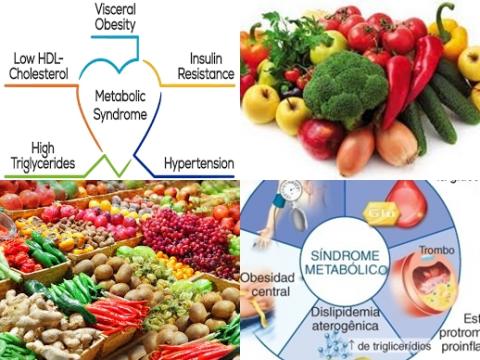
Objectives:
Several epidemiological studies have been performed to evaluate the association of fruit and vegetable consumption with risk of the metabolic syndrome (MetS), but the results remain controversial. Therefore, this review article (meta-analysis) has been conducted.
Does consumption of vegetables or fruit reduce risk of metabolic syndrome?
Study design:
This review article included a total of 9 studies for fruit consumption, 9 studies for vegetable consumption and 7 studies for fruit and vegetable consumption.
There was no evidence of small-study effect (publication bias)
Results and conclusions:
The investigators found a significantly reduced risk of 13% [pooled RR = 0.87, 95% CI = 0.82-0.92, I2 = 46.7%] for metabolic syndrome when comparing the highest fruit consumption versus the lowest consumption.
The investigators found a significantly reduced risk of 15% [pooled RR = 0.85, 95% CI = 0.80-0.91, I2 = 0.0%] for metabolic syndrome when comparing the highest vegetable consumption versus the lowest consumption.
The investigators found a significantly reduced risk of 24% [pooled RR = 0.76, 95% CI = 0.62-0.93, I2 = 83.5%] for metabolic syndrome when comparing the highest fruit and vegetable consumption versus the lowest consumption.
The investigators found in subgroup analyses stratified by continent, the inverse association of fruit consumption [RR = 0.86, 95% CI = 0.77-0.96] and vegetable consumption [RR = 0.86, 95% CI = 0.80-0.92] with risk of metabolic syndrome remained significant in Asia.
The investigators concluded that a high fruit or/and vegetable consumption reduce risk of metabolic syndrome, particularly among Asian. Therefore, people should consume more fruits and vegetables to reduce risk of metabolic syndrome.
Original title:
Fruit and vegetable consumption and risk of the metabolic syndrome: a meta-analysis by Tian Y, Su L, [...], Jiang X.
Link:
https://www.ncbi.nlm.nih.gov/pubmed/29151369
Additional information of El Mondo:
Find more information/studies on fruit and vegetables consumption and overweight right here.
Find out whether you are overweight or not right here.
Those with metabolic syndrome are advised to follow a diet with maximum 30 En% fat, of which maximum 7 En% saturated fat and minimum 1.5 grams fiber per 100 kcal.
The most easy way to follow a diet with maximum 30 En% fat, of which maximum 7 En% saturated fat and minimum 1.5 grams fiber per 100 kcal is to choose meals/products with maximum 30 En% fat, of which maximum 7 En% saturated fat and minimum 1.5 grams fiber per 100 kcal.
However, the most practical way to follow a diet with maximum 30 En% fat, of which maximum 7 En% saturated fat and minimum 1.5 grams fiber per 100 kcal is all meals/products that you eat on a daily basis should on average contain maximum 30 En% fat, of which maximum 7 En% saturated fat and minimum 1.5 grams fiber per 100 kcal.